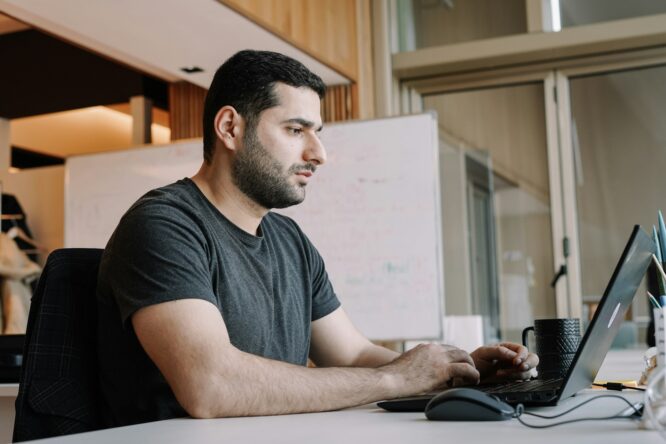Saving money doesn’t have to mean extreme budgeting or giving up everything that makes you happy.

Sometimes, it’s the small changes that make the biggest difference to your finances in the long run. While you might not have a lot of extra to work with once your bills are paid every month, there are still things you can do to boost your bank account and make things slightly less stressful. Here are a few easy ways to start.
1. Unfollow accounts that make you want to spend.

If your feed is full of product links, “must-haves,” or lifestyle content that quietly pressures you to upgrade everything, your spending habits might be influenced more than you realise. It’s hard to save when your daily scroll normalises impulse buys. Curating your online space to align with your financial goals is a quiet power move. When you’re not constantly seeing things to buy, your urge to spend starts to fade, and your priorities come back into focus.
2. Use your shopping basket as a 24-hour holding zone.

Before hitting “buy now,” let your items sit in the cart overnight. That pause gives your brain time to figure out if it’s a real need or just a passing moment of dopamine chasing. Most impulse spending isn’t about the item—it’s about how we feel in the moment. Giving yourself a buffer makes the decision clearer, and often, you’ll realise you didn’t want it that badly anyway.
3. Make a “do not buy” list.

We’re used to making shopping lists, but sometimes the most powerful list is the opposite. Write down things you know you overbuy, regret, or already have too many of. That visual reminder keeps you from drifting back into old habits. You’re not trying to make yourself feel guilty here—you’re upping your awareness. When you can name the items that drain your budget without adding value, it’s easier to walk away from them with zero internal debate.
4. Automate a tiny transfer every payday.

You don’t need to save huge amounts at once. Even setting up a small auto-transfer—like £5 or £10—to go into savings every payday builds consistency. It turns saving into a habit, not a chore. As time goes on, those small amounts add up. And because they move automatically, you won’t miss them the way you might with manual transfers. It’s one of the simplest ways to start growing a buffer without thinking about it.
5. Don’t make it easy to dip into your savings.

Having instant access to your savings makes it too tempting to dip in for non-essentials. Try using a separate bank, or at least one without a linked app, to create a little friction. When withdrawing requires extra steps, you’re more likely to pause and reconsider. That small barrier can make a huge difference when it comes to protecting the money you’re trying to build.
6. Cancel the subscriptions you forgot you even had.

Streaming services, apps, memberships—these charges often fly under the radar. You might not notice a few pounds here and there, but together, they add up fast—and chances are, you’re not using most of them regularly. Take 10 minutes to go through your statements and cancel whatever doesn’t actively serve you. You can always re-subscribe later—but giving yourself a clean slate lets you be more intentional moving forward.
7. Try one “buy nothing” day each week.

Pick one day a week when you consciously spend nothing—no coffees, no random checkout extras, no online impulse buys. It sounds small, but it creates a rhythm of restraint that’s surprisingly empowering. It also makes you more aware of how often spending has become a default habit. Those quiet days help reset your baseline and remind you that you don’t need constant purchases to get through the day.
8. Keep snacks on hand to avoid emotional spending.

Weirdly enough, hunger plays a big role in poor spending decisions. If you’re tired, hungry, or irritable, you’re way more likely to buy things impulsively, especially food or feel-good treats. Keeping a few snacks in your bag, car, or desk can help you stay grounded when those emotional buying moments hit. It’s not self-denial—it’s making sure your brain isn’t shopping from a place of desperation.
9. Find your personal budget trap, and name it.

Everyone has a spending category that’s their weak spot. It could be takeout, skincare, books, or tech gadgets. Naming it helps take the shame out of it and gives you a clear target for mindful change. Once you know your pattern, you can build small systems around it. That might mean cash-only limits, unsubscribe sessions, or simply pausing before checking out. You’re not fixing yourself; you’re just getting smarter about how you move.
10. Stop saying yes to plans you can’t afford.

Social pressure is one of the most expensive things in adult life. It’s hard to say no to dinners, weekends away, or group gifts, but constantly agreeing to plans you can’t afford only leads to resentment and debt. You’re allowed to protect your financial peace without apologising. Saying “not this time” or suggesting cheaper alternatives doesn’t make you difficult—it makes you financially honest.
11. Delay replacing things until it’s truly necessary.

We often replace things long before they actually stop working. A slightly worn pair of shoes or an outdated phone doesn’t always need an upgrade. Holding off just a little longer can save serious money. Start asking yourself, “Is this inconvenient—or actually broken?” That mindset helps you move from reactive spending to practical decision-making, without making your life harder in the process.
12. Let contentment be louder than comparison.

Comparison is a budget killer. When you’re constantly measuring your life against people online—or even people in your real life—it’s easy to start spending to “catch up” rather than meet your own needs. Staying grounded in what actually matters to you is what protects your financial well-being. When you prioritise feeling steady over looking successful, saving money becomes way more natural—and way less exhausting.




